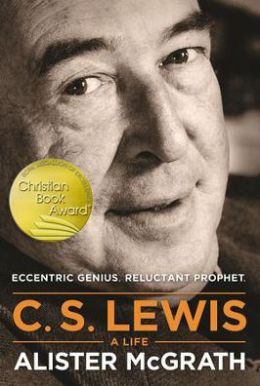
Thanks to my kind wife, while on holiday I've been reading Alister McGrath's fine new biography of C.S. Lewis (Tyndale 2013). McGrath purports to have read every word written by Lewis (books, article, diaries, correspondence, and what-not) and I have no reason to doubt him. As a university teacher I found McGrath's comments of Lewis's tutorial teaching style worth quoting:
By the mid-1930s. Lewis's tutorial load was heavy. We possess a number of accounts of Lewis's approach to tutorials during the 1930s, all of which emphasize his acutely critical questioning, his desire not to waste time, and a certain degree of impatience with weaker or lazier students. Lewis did not see it as his responsibility to impart information to his students. He resented and resisted what some called the "gramophone" model of tuition, in which the tutor simply imparted the knowledge that the students had so signally failed to discover for himself. (Emphasis added.)Obviously, Lewis was not subject to SETs (student evaluations of teaching) in his days at Oxford. Nor, for that matter, were any of my professors in my days as a student. But times have changed and students are now consumers and, as marketers have told us for many years, the customer is always right.
But what of Lewis's method? Was it nothing more than an opportunity to display is brilliance at the expense of someone younger and less knowledgeable? Not so, according to McGrath:
The tutorial was not simply about accumulation of knowledge [by the student on his own]; it was also about developing critical thinking--fostering a spirit of analyzing and evaluating important ideas or beliefs in an effort to calibrate their quality and to improve them, and to discover unexamined assumptions and challenge them.In other words, the Socratic method at its best.
It's also important to balance what must have been a terrifying experience of a student who had Lewis as a tutor from those who attended his lectures. In his lectures Lewis "was good at explaining complex ideas to others, because he had first explained them to himself: 'I'm a professional teacher and explanation happens to be one of the things I've learned to do,'" Lewis said of himself.
Balancing generating the spirit of analysis and evaluation together with the need to explain is at the heart of law school pedagogy. As I'm confident my students would agree, I have a long way to go before anyone confuses me with C.S. Lewis on either front.




No comments:
Post a Comment